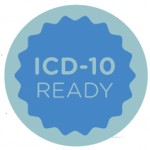One month has passed since the U.S. healthcare system overcame a historical milestone with the conversion from billing ICD-9-CM to ICD-10-CM. Although the transition to ICD-10 had a major impact on coding operations, its far-reaching tentacles go beyond coding alone and are deeply rooted in the entire revenue cycle. There is room to criticize the…





